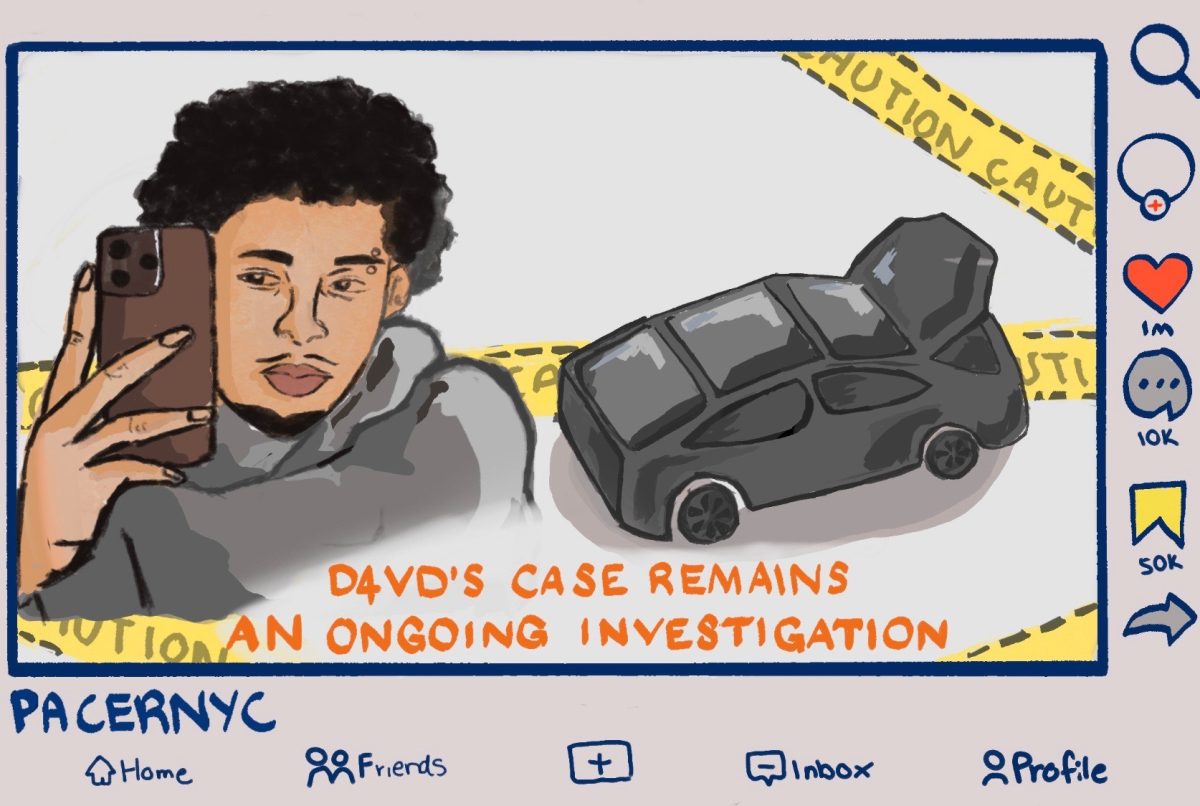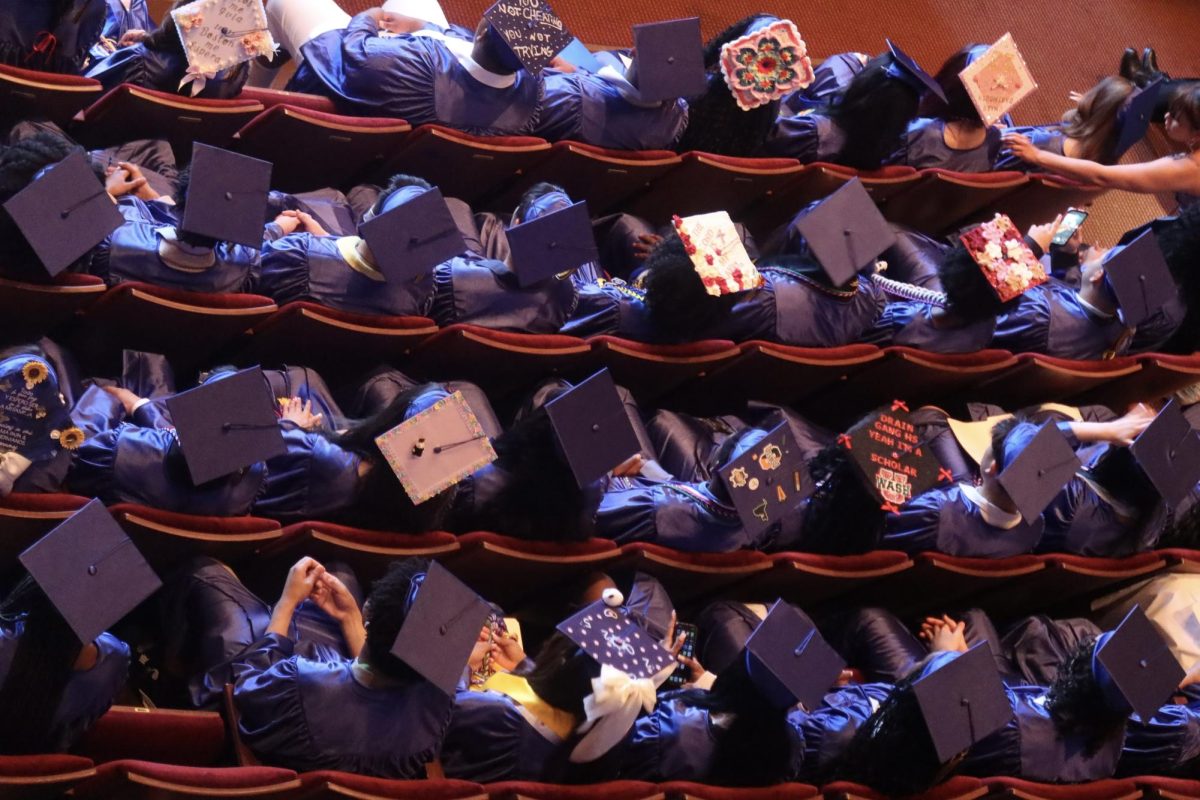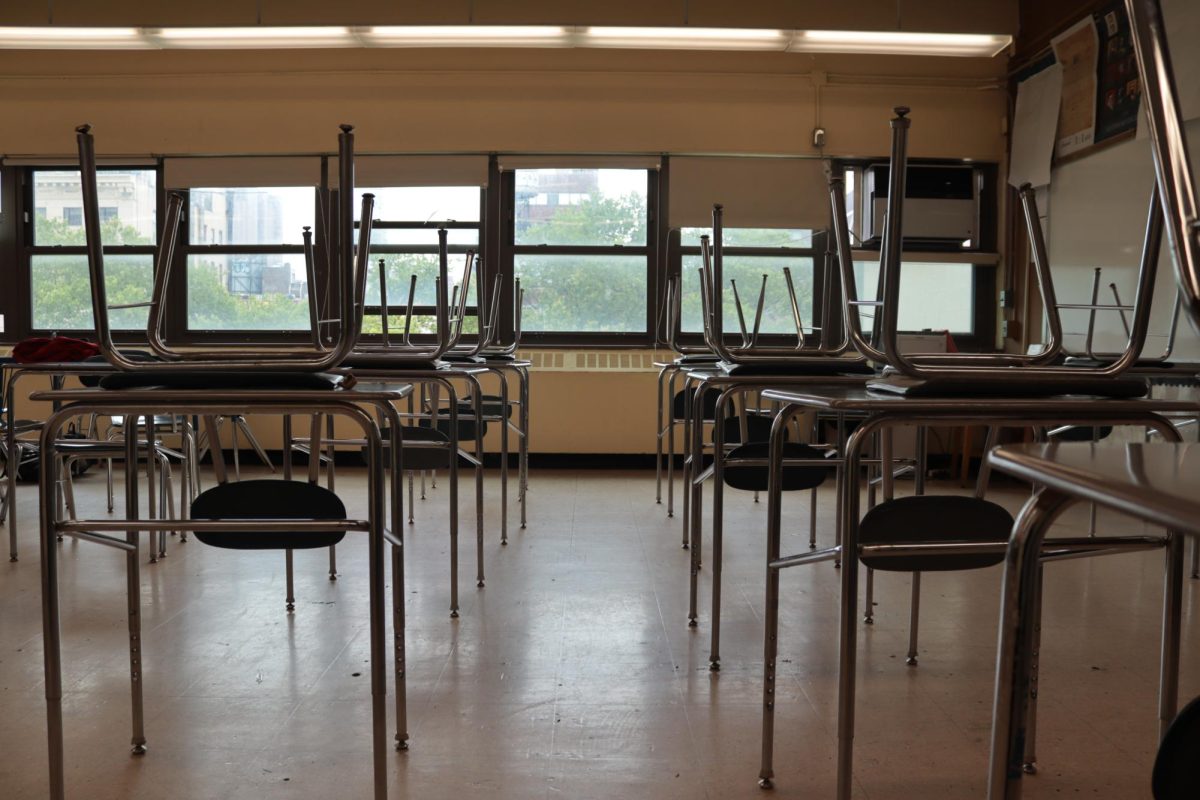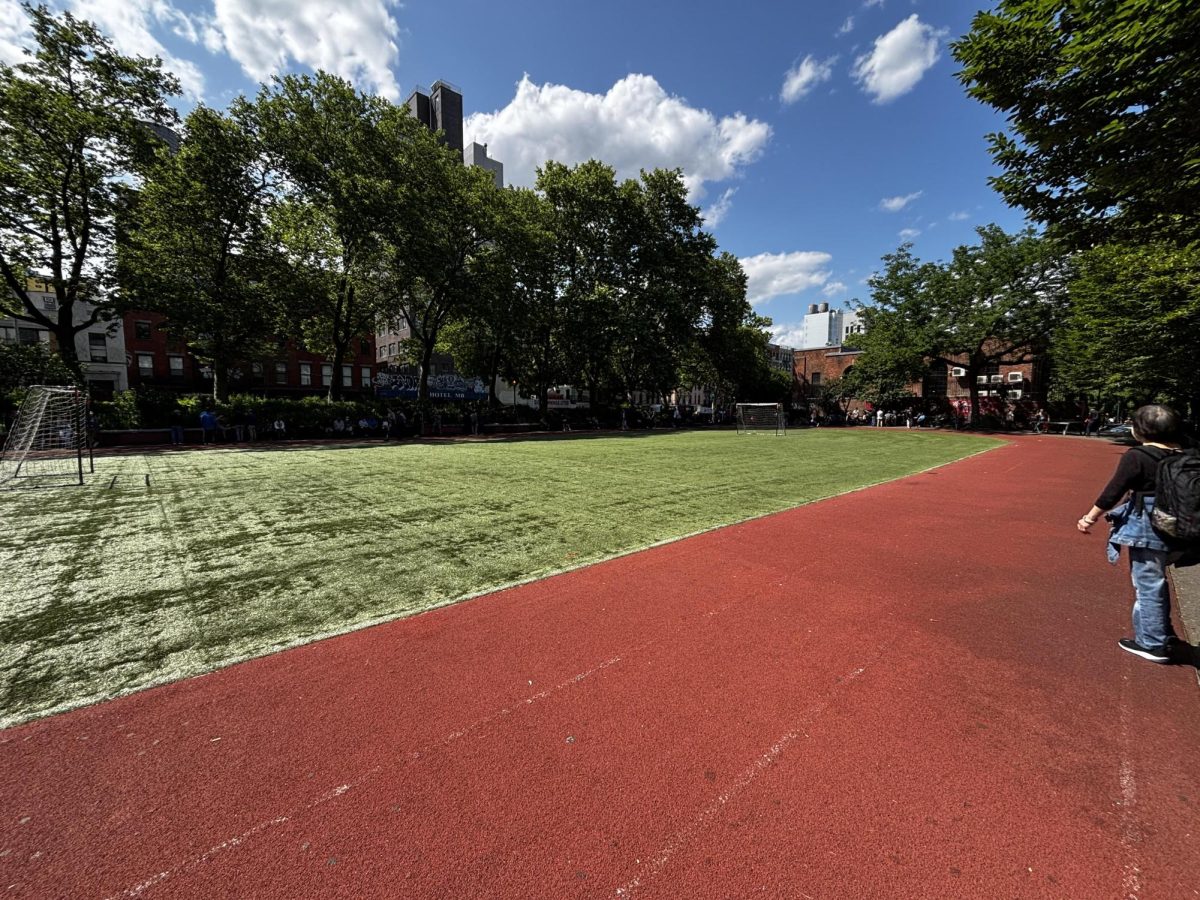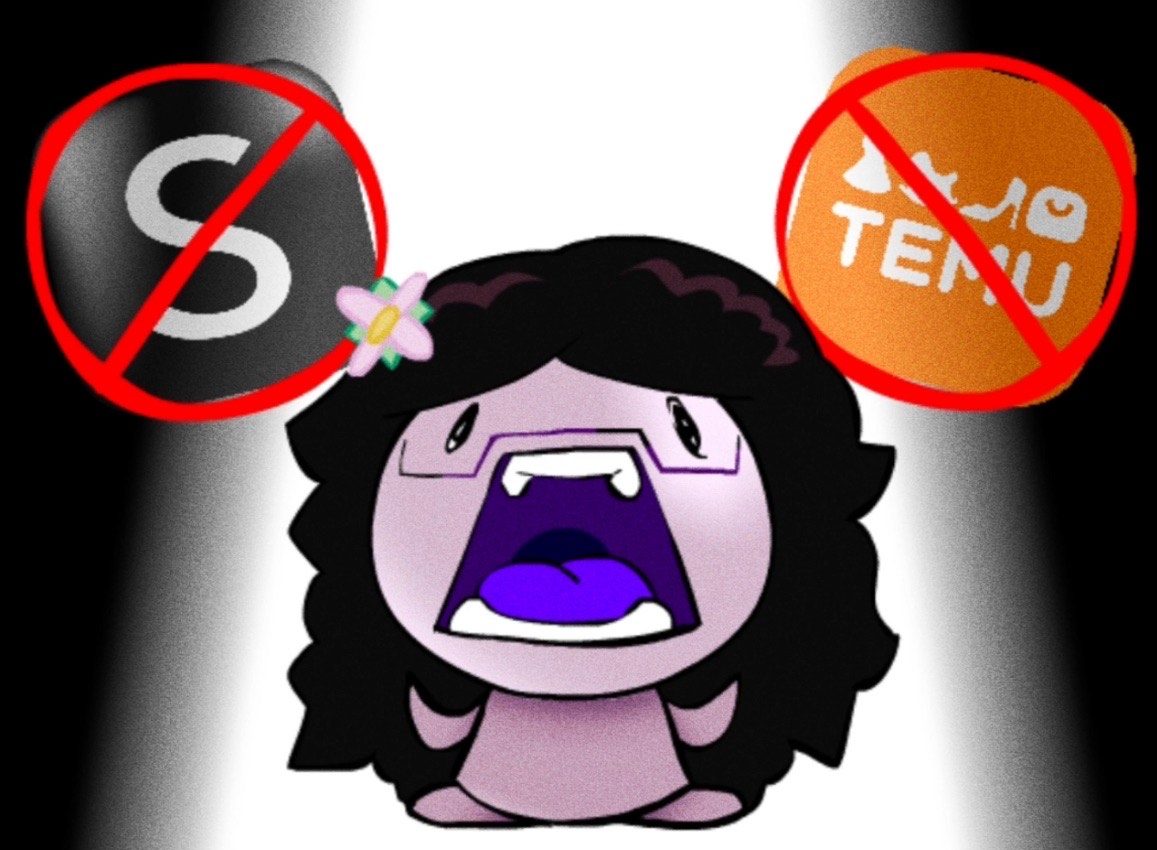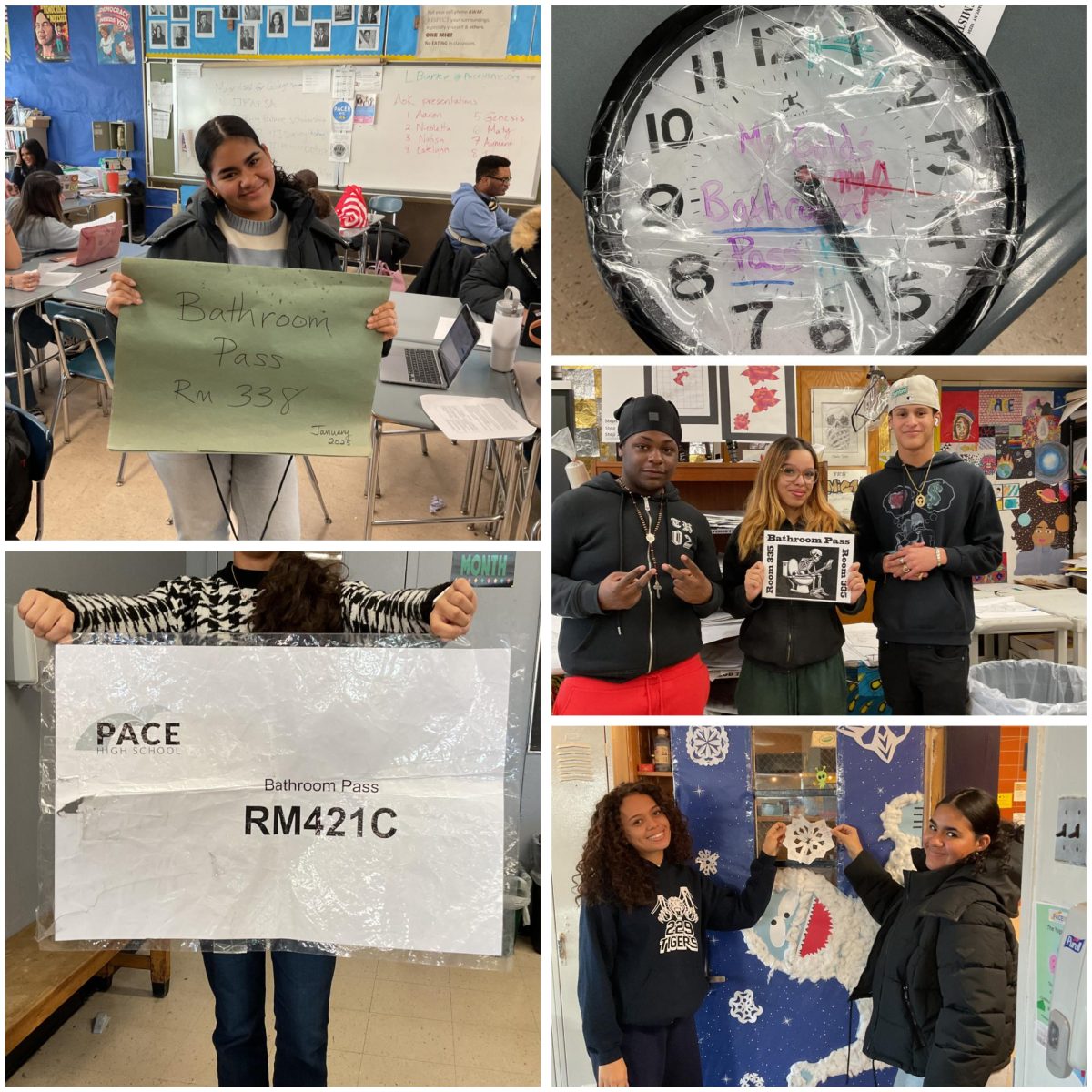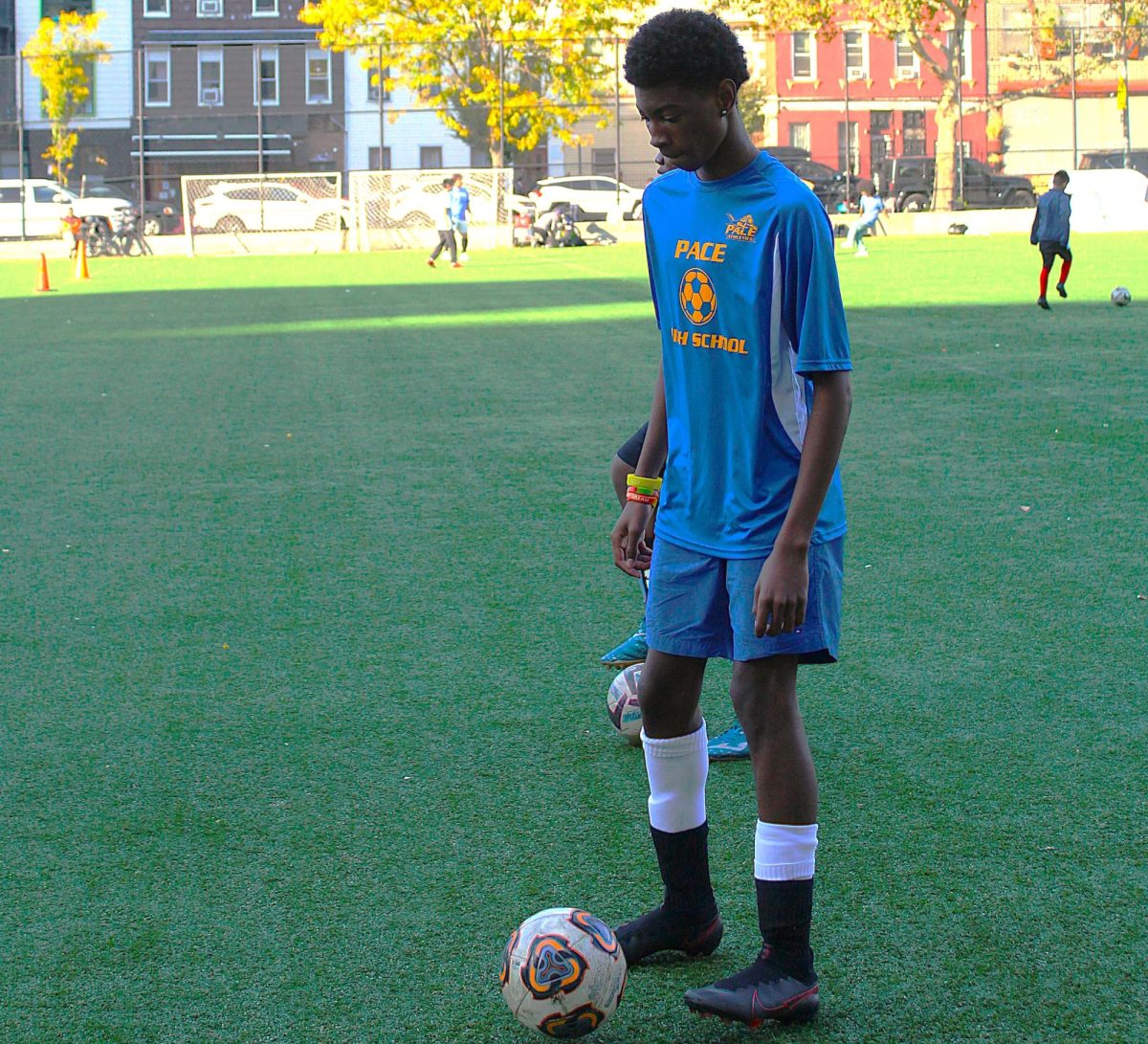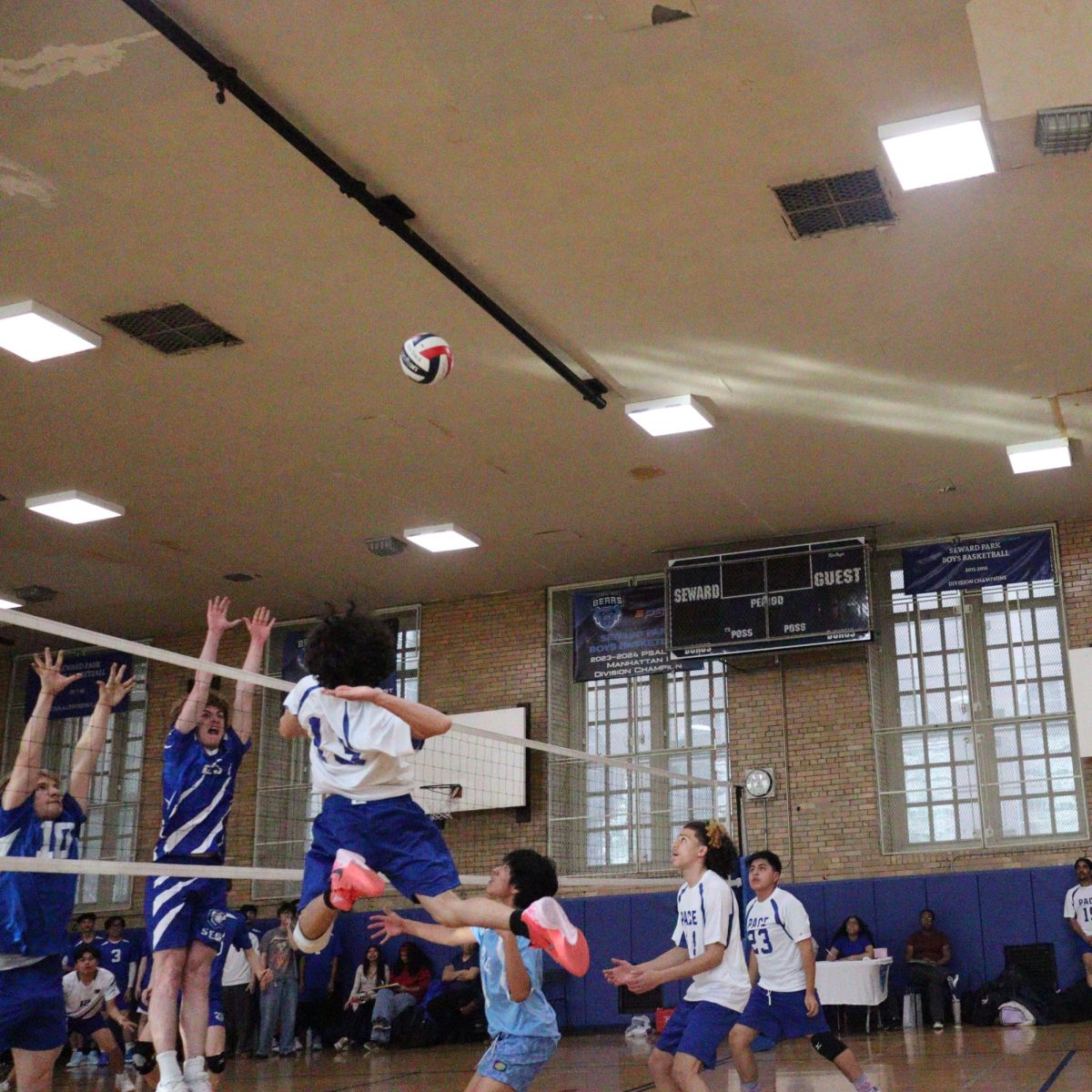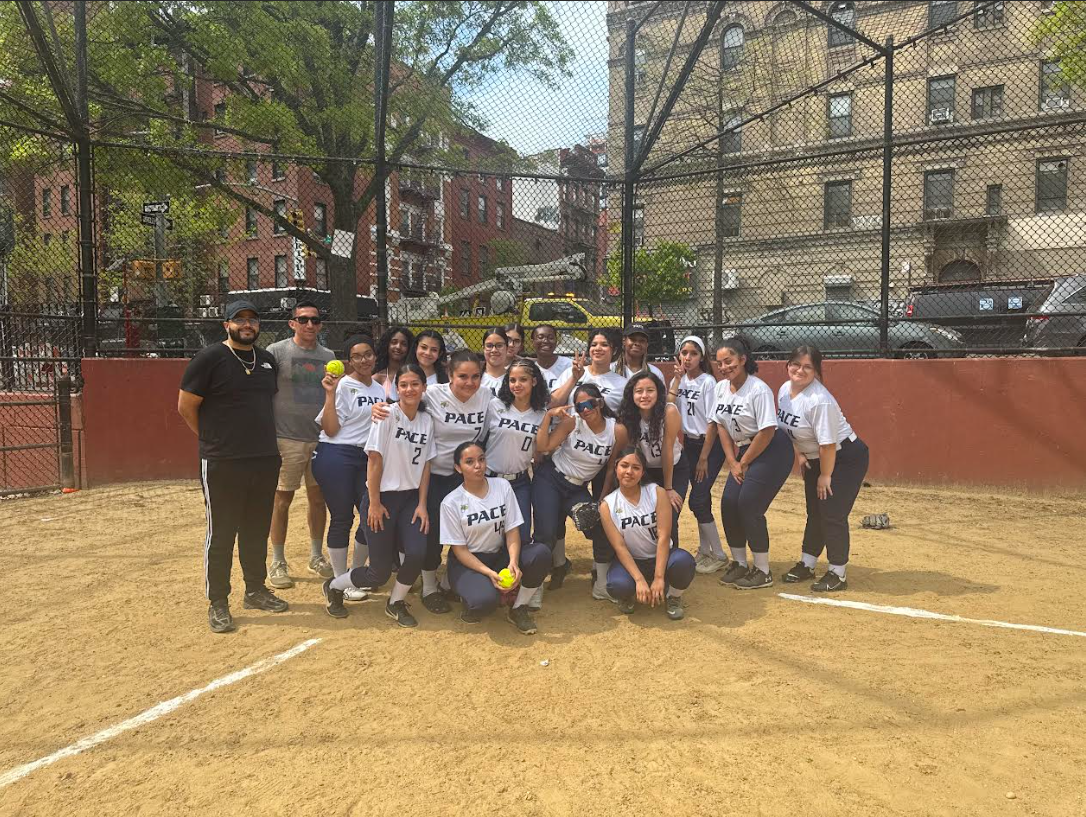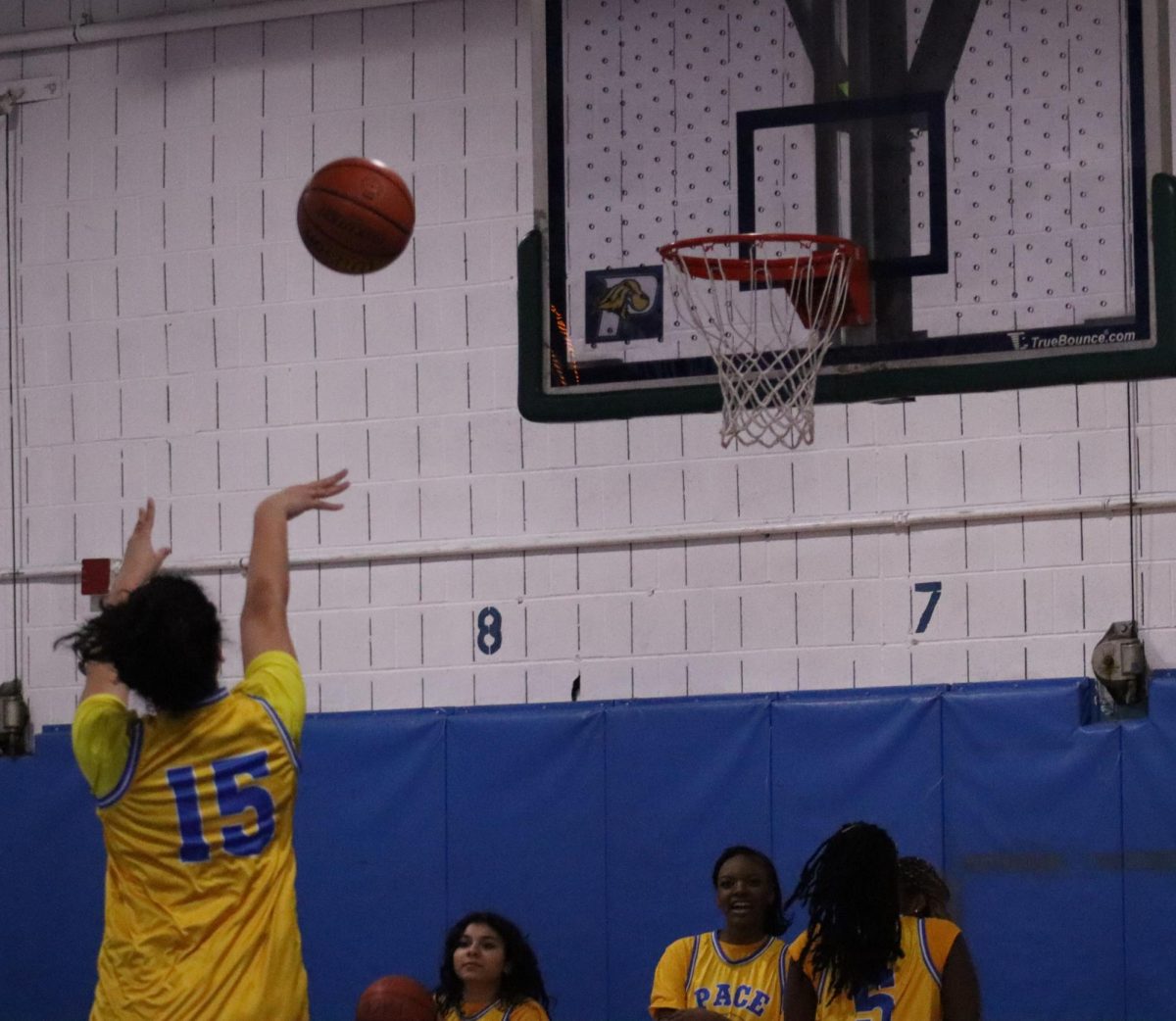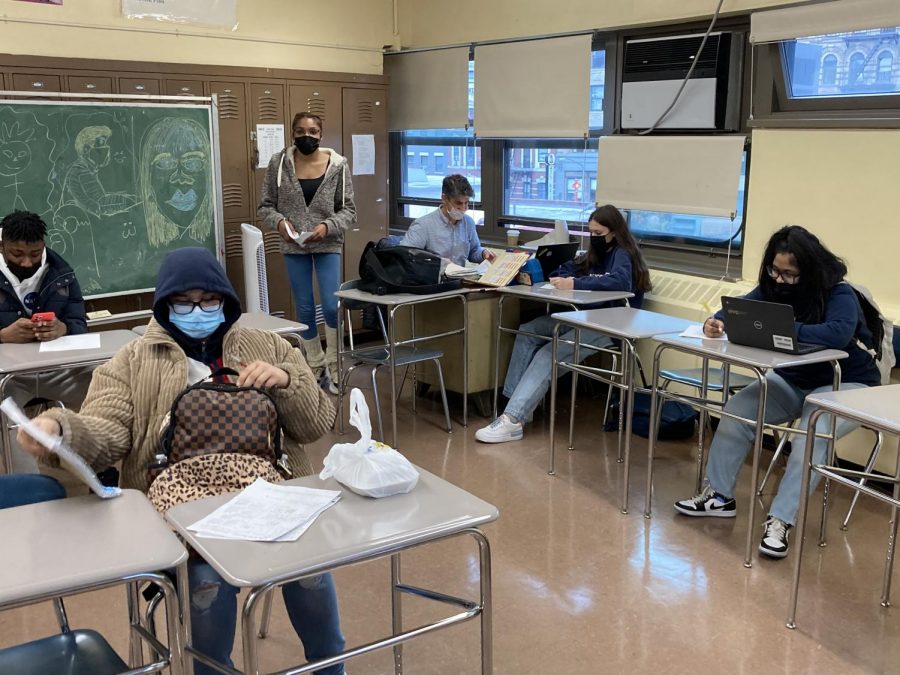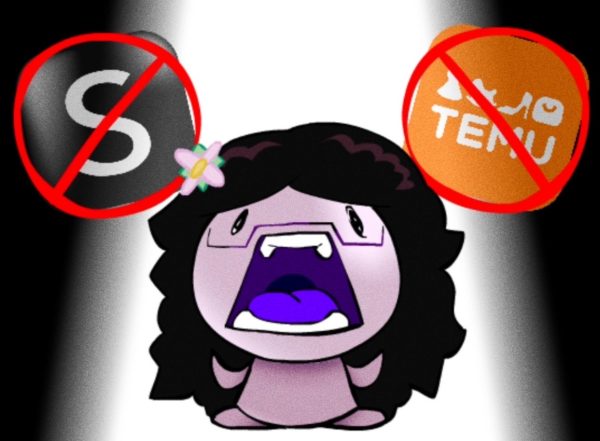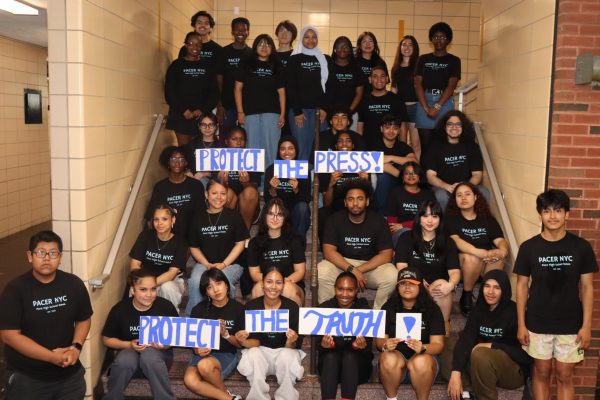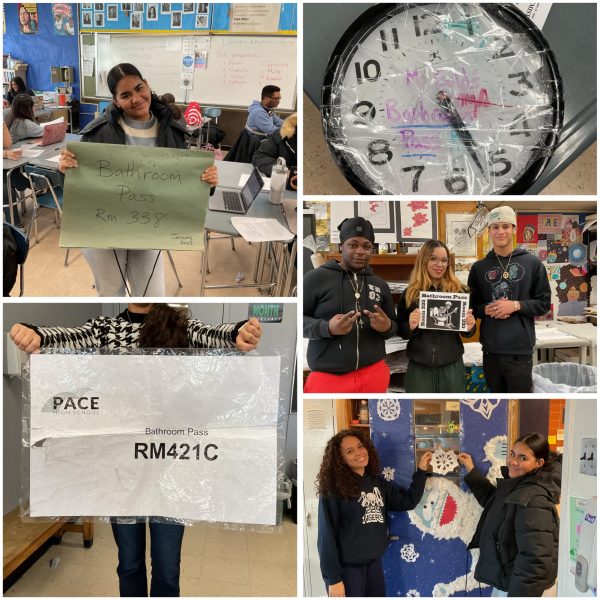Are the Clubs at Pace High School Satisfactory?
Editorial Opinion
photo Pacer Staff
This is the Math Zone: every Monday and Thursday after school.
At Pace High School, there are an array of clubs to choose from and posters advertising these clubs adorn the halls of the school. But are they satisfactory to the whole community? This past fall some of the student body and faculty expressed their opinions on the matter of the extracurricular satisfaction of the school.
Jasmine Cortez, a 12th grader, stated, “Pace High School clubs aren’t that interesting and they aren’t talked about a lot.”
But Robert Greenblatt, the AP Calculus AB teacher and advisor of Math Zone, thinks differently. Math Zone is one of the more prominent and long-running clubs at Pace. It assists students with math homework and activities, hosts competitive games, and participates in mathematics competitions throughout the academic school year.
“I believe that there’s a lot of good clubs to choose from at our school. I do feel as though some teachers are very busy; there are other responsibilities and it’s hard to make time to oversee clubs,” Greenblatt stated.
“Math Zone is helpful in assisting students with math. There’s a lot of gaps and holes within the education system and without giving us enough time to cover everything, and that makes it harder on teachers.”
Greenblatt highlights the underlying problems within the education system at Pace High School that seem to interfere with the overall success of the extracurricular activities taking place. If the school had more organization academically, there is a possibility that teachers would dedicate some of their time to overseeing and taking part in extracurricular activities.
It must be noted that students are not satisfied with clubs because their interests are not always shared with others and it may be hard to find those that share that interest because that interest is based on a rare subject. For example Jasmine Cortez said, “Something interesting would be a Robotics club. I do believe that there are enough teachers, it’s just that some of them don’t show interest.”
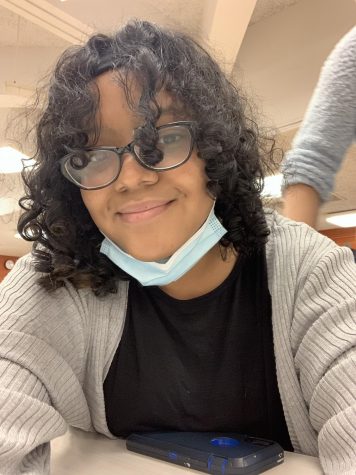
Cortez added, “My problem with Pace High School clubs is the schedule. Some clubs are at 3:30 and some people’s schedules take them out of school earlier; it doesn’t seem worth it to wait that long.”
Cortez’s critique points to the underlying schedule issue of the school community. Some seniors, for example, are out of school as early as fourth period while others stay until 3:30 p.m. More of the younger grades do not have this problem because they get out at 3:28, but many seniors are not having the full extracurricular experience because of the schedule.
Henry Lopez, an 11th grader, is more neutral on the subject of the satisfactoriness of the clubs. Lopez states, “Yes I believe that our school provides a satisfactory selection of clubs. I believe that some teachers are reluctant to start clubs because of no interest or they have no time. Some people don’t go to clubs because they’re learning a new skill or are joining outside organizations. Others have families to take care of and other responsibilities or just want to be by themselves. As an individual, something that hinders me from joining clubs is that I myself have joined many clubs and many of the dates overlap with each other so it’s hard for me to go to them all.”
Lopez brings to light another of the underlying issues of club time overlapping, but it will be difficult for Pace High School to navigate the timings because people still have work and outside matters to attend to.
Pace High School is surely encouraging in people’s education, but external factors inhibit the potential of the extracurricular activity array at the school. Pace can limit these problems in order to further the satisfaction of the student and faculty.
Pace needs improvement in the organization of academics and schedules in order for the school administration to be dedicated to extracurriculars.
Your donation will support the student journalists of Pace High School. Your contribution will allow us to purchase equipment and cover our annual website hosting costs.

